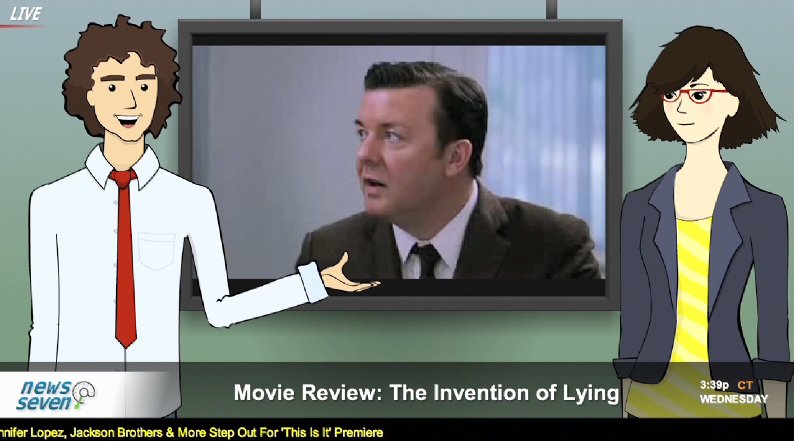I, not robot: A critic speaks out (while she still can)
By Kelly Kleiman

I, not robot: A critic speaks out (while she still can)
By Kelly Kleiman
Editor’s note: Scientists at Northwestern University have designed an artificial intelligence program that generates a virtual news show. On its own, it collects the news from online sources, writes a script, then animates cartoon-style avatars to deliver the show. The program, called News at Seven, is a project of the Intelligent Information Lab, co-directed by professors Kristian Hammond and Larry Birnbaum. One version of the program, launched in 2008, was designed to offer not just hard news by-the-numbers, but movie reviews.
Theatre critic Kelly Kleiman considers the implications for flesh and blood critics.
When I heard that robots were writing sports stories, I was barely surprised: So many stories about competitive sports are a list of names and numbers (“Boston beat the White Sox 4-2, with pitcher Whoosafroogit’s wild pitch in the 4th inning leading to a walk-off homer by Whatsisname”). The data are simple, easily retrievable and easy to assemble into comprehensible sentences.
But robots writing criticism? The mind (at least mine) boggles. Are reviews really that formulaic? And if they are, is the response to give them to robots to write or to jolt human writers out of their complacency?
I don’t pretend to be current on the state of artificial intelligence, so when I say I don’t understand how a robot could write criticism, I mean that literally. Has robotics advanced to the point that a walking computer could take in a performance, compare it to a large body of other performances it has seen before and evaluate the worth of the script and the persuasiveness (dare I say “humanity”?) of the actors?
We assess quality based on a template consisting not only of our previous theatrical experiences but of our experiences of people in general, which is why a reviewer’s perspective changes over time. It’s not clear to me how that body of learning could be acquired, much less meaningfully processed, by a machine.
Then there’s the question of insight: An alert critic experiences each production of a play differently and, in the best cases, understands something about the play from Production Q that she’d never realized during Productions A through P. And there’s the question of tone: A human being can tell that Chekhov’s monologue about giving up tobacco is actually a revelation of existential despair. Could a robot understand that, or would it object to the constant divergences from the ostensible topic?
But all of these pale before the ultimate question: Do android critics dream of electric actors?
Deactivating now.